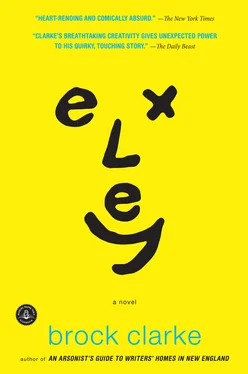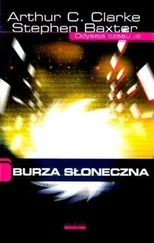“Your father told your mother that maybe he should go to Iraq, too,” I say, and then I repeat the final word: “‘Too.’ What do you think he meant by ‘too’?”
M. nods, then cocks his head slightly to the right. Only now can I tell what M. is thinking. I can tell he’s asked himself the same question. Finally, he says, “Maybe he meant that he was going to Iraq, just like everyone else around here?” And by the way he says this — as a question, not as a statement — I can tell that M. still has not found the answer.
The VA Hospital
Iknew where the VA hospital had to be: on Washington Street. Because that’s where all the hospitals and social services are in Watertown. That’s where Good Samaritan is — the place where I was born and where, I found out later, Exley was born, too — and where the county blood clinic and the county mental hospital and the county welfare office and the county substance-abuse clinic and the county domestic-abuse clinic and the library and the historical society and the YMCA and Watertown Daily Times all are, too. It’s the most popular street in Watertown: people are always outside, lining the sidewalks. Whenever I was with Mother or my dad as we drove down Washington Street, I felt like I was in a parade and the people on the sidewalks were watching me. This time, I was the parade all by myself — me and my bike. I walked my bike past the same people, again and again, as I looked for the VA hospital. Past the five guys outside the YMCA, smoking their cigarettes: one half of their faces seemed to be in shadow even though it was noon and sunny out, and the other half seemed to be winking at me. Past the two fat women standing at the end of a huge line outside the county welfare office but facing away from the office and toward the street: they were dressed in bright green and pink sweatpants and black bubble jackets and were staring at me with their round white faces and tiny eyes, like I had something they wanted, something they didn’t think they’d get from the welfare office. I tried not to stare at them and kept walking, past the soldier wearing his camo and his beret, with his pant legs tucked into his high boots, standing in the middle of the sidewalk and talking on his cell phone. You can’t go anywhere in Watertown and not see a soldier talking on a cell phone, just like everyone else who isn’t in a uniform. I don’t know why this surprised me so much the first time I noticed it, but it did. When my dad first went to Iraq, I used to stop every soldier I’d see and interrupt his phone conversation and ask him if he knew my dad. One time, when I interrupted one soldier’s phone call, he handed me the phone, said, “Here you go.” “Hello?” I said, thinking it’d be my dad. But it wasn’t. It was some woman saying, “Reggie? Is that you? Reggie, I’m talking to you.” I handed Reggie back his phone and said, “That isn’t my dad.” “No,” Reggie said sadly. “But I wish it was.” He put the phone to his ear and said, “I’m here, Sharon,” and then with his free hand he made a gun, put the index finger to the side of his head, pulled the trigger of his thumb, and mouthed the word Pow!
Anyway, none of the soldiers I asked ever knew my dad, and so I stopped asking them. I walked right past the soldier, toward a guy shouldering a duffel bag, coming right at me. He was wearing a jean jacket with the sleeves cut off; there was a black tattoo of a vine creeping from underneath the right sleeve all the way to his knuckles. He stopped in front of me, raking his right forearm with his left hand, tilling the skin, I guess, before he planted another vine tattoo in it. And his eyes were bloody. I don’t mean they were red, like he had allergies or had been crying; I mean they were filled with blood, like he’d been wounded somewhere in his sockets, behind his eyeballs. His hair was military short except for a ridge of slightly longer hair going from his forehead to the nape of his neck. It was the kind of haircut you get when you don’t know what kind of haircut to get. He was young, too. He hadn’t even started to shave yet; he was probably only thirteen years old. That was the scariest thing about him. Like he would do something to me that a normal kid would do, but much worse. I could imagine him taking my bike away from me, for instance, and then strangling me with it.
But he didn’t do that. Instead, he asked, “Yo, where’s the library?”
We were both standing right in front of the library, but I didn’t want to say those words. I was afraid they would sound like this: You’re standing right in front of it , stupid. So I just pointed. The guy looked in the direction I’d pointed, and I kept walking, toward the bottom of Washington Street, where I hit the Public Square, turned around, crossed the street, and walked back. It was the fifth time I’d walked up and down the street, and still , I couldn’t find the VA hospital. I could not find it . I knew there was a VA hospital in Watertown because I knew some of my classmates’ fathers had been patients there. And I knew the VA hospital had to be on Washington Street. Because that’s where all the hospitals were. Because if it wasn’t on Washington Street, then I couldn’t imagine where it was. And if the VA hospital wasn’t on Washington Street, and I couldn’t find it, then how was I going to find my dad? I started to panic a little just thinking about it. Then I saw the guy with the cutoff denim jacket crossing the street, stopping traffic, coming right toward me, and I started to panic a lot more. He looked mad, like I’d given him really bad directions; he looked so mad that it didn’t seem like it would do any good to say I was sorry. This might be why I said, when he reached my side of the street, “Do you know where the VA hospital is?”
His face changed. He stopped looking mad and started looking helpful, like a Good Samaritan with a bad haircut. “You’re standing right in front of it, stupid, ” he said, and pointed.
I looked in the direction he was pointing, and there it was, right between the historical society and the Daily Times building. The VA hospital was set way back from the street, with a big lawn and big oak and maple trees between it and me, which is probably why I hadn’t noticed it. The other hospitals on Washington Street had been built sometime after my parents had been born but before I had, but the VA hospital was from another time: it was made of big blocks of gray stone and had two huge Corinthian columns in front. It looked like a temple, not a hospital. We were studying ancient Greece and Rome in social studies and had done a unit on columns. That’s how I knew the VA hospital’s columns were Corinthian and not Doric.
I turned away from the VA hospital and toward the guy to thank him. He looked mad again. He bared his teeth; some of them were missing, and the ones that weren’t were the color of old newspapers. “Yo, ” he said, “where is the library? ” He asked this like he’d asked me the question many times, and not just once, and like I hadn’t answered him. I had, although not with my mouth. So I said, “It’s right across the street,” and then pointed. He looked where I pointed, and while he was looking away, I ran with my bike toward the VA hospital.
The woman at the VA hospital’s front desk didn’t look up at me as I walked toward her, but instead kept her eyes on her computer monitor, which hummed like a spaceship. I couldn’t see what she looked like from the waist down (the desk the woman was sitting behind came up to the middle of my chest), but from the waist up she looked like a nurse: she was wearing a blue cardigan sweater, and underneath I could see what looked like a lighter blue medical uniform. Her hair was short, curled but not curly, and so black it had to be gray underneath. She looked a lot like the nurse at my school, Case Middle School. The nurse at school was always telling me, when I came into her office with a headache or stomachache, that no, I wasn’t sick, and so no, she wasn’t going to let me go home early. I could imagine this nurse telling me, No, you can’t see your dad . Or even worse, No, your dad isn’t here. No, there’s no patient here named Tom Le Ray .
Читать дальше












